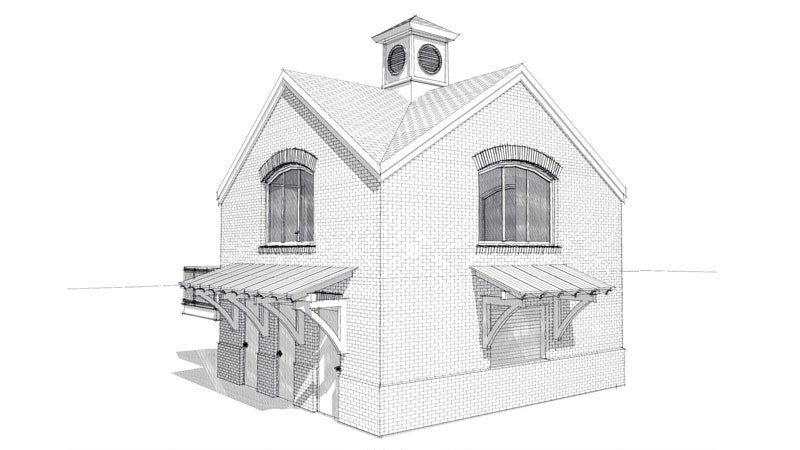Proposed Luter concession stand headed to Town Council for funding
Published 6:13 pm Tuesday, September 26, 2023
The Smithfield Town Council’s Parks and Recreation Committee is proposing to reallocate funds earmarked for a maintenance building at the Luter Sports Complex and instead build a concession stand and bathrooms near the park’s football field.
The Town Council had planned to use $400,000 from federal COVID-19 relief funds it received in 2021 from the American Rescue Plan Act, or ARPA, to fund the construction of a roughly 3,800-square-foot building that would house maintenance equipment for all three town-owned parks.
Parks and Recreation Director Amy Novak told council members in August that cost estimates had come back well above what was budgeted, and on Sept. 25 she gave an updated price of $1.1 million for the project.
The building that would house the concession stand and bathrooms, by comparison, is currently estimated at roughly $250,000.
The town’s plans call for a two-story building, the first floor of which would house the concession stand and four single-user bathrooms. The 391-square-foot second floor, accessible via an exterior staircase, would house a conference space for Smithfield Packers Youth Sports, which administers the park’s football program.
Councilwoman Renee Rountree, who serves with Councilmen Jeff Brooks and Michael Smith on the Parks and Recreation Committee, said it’s her understanding the second floor would be used primarily to provide tutoring to football players and cheerleaders enrolled in the youth program when they’re not on the field.
Football program participants, and students in general, have seen “a ton of learning loss” since schools shuttered during the early days of the COVID-19 pandemic, Rountree said.
The $250,000 cost estimate would include bricking the entire building to match the existing concession stand and bathrooms that serve the park’s baseball fields.
The full council will need to vote on the reallocation of ARPA funds to the concession stand at a future meeting, the next being scheduled for Oct. 4.
Whether to also build the maintenance building out of brick remains a point of contention among the council members.
According to Greg Schmitt, a civil engineer with the firm Kimley-Horn, roughly half of the million-dollar cost of the maintenance building would be for site work, a large portion of which would be tied to meeting state and federal regulations. Also driving the high cost is the addition of a 59-space parking lot adjacent to the building. The parking lot is slated for land formerly occupied by the circa-1840s Wombwell house the town demolished in 2021.
The town, Schmitt said, could save roughly $100,000 by constructing a pre-engineered metal building rather than one with a brick exterior.
Councilman Randy Pack, who objected last month to placing a metal building at what he described as a “world-class park,” reiterated his opposition to the idea at the Sept. 25 committee meetings.
In February, the council added language to its zoning ordinance requiring government-owned structures to be “substantially in conformance” with Smithfield’s entrance corridor overlay requirements, even if built outside the 500-foot entrance corridor buffer zone on West Main Street where the Luter Sports Complex is located.
The town’s entrance corridor overlay guidance document, last updated in 2005, mandates developers use brick or other materials “appropriate to town character.”
Were Smithfield to apply to the Planning Commission, on which Pack also serves, for an exemption from its own recently enacted ordinance, “I don’t think that sets a particularly good precedent,” Pack said.
Councilman Wayne Hall, however, said he favors cutting $100,000 off the cost by dispensing with the bricks.
Novak too favors the pre-engineered metal option, and contends landscaping will obscure the structure from being visible from the road.
The maintenance building as designed would be identical – save for the possible brick exterior – to a metal building the town of Windsor built for its public works department in 2020 for just over $620,000. Construction costs have soared since then.







